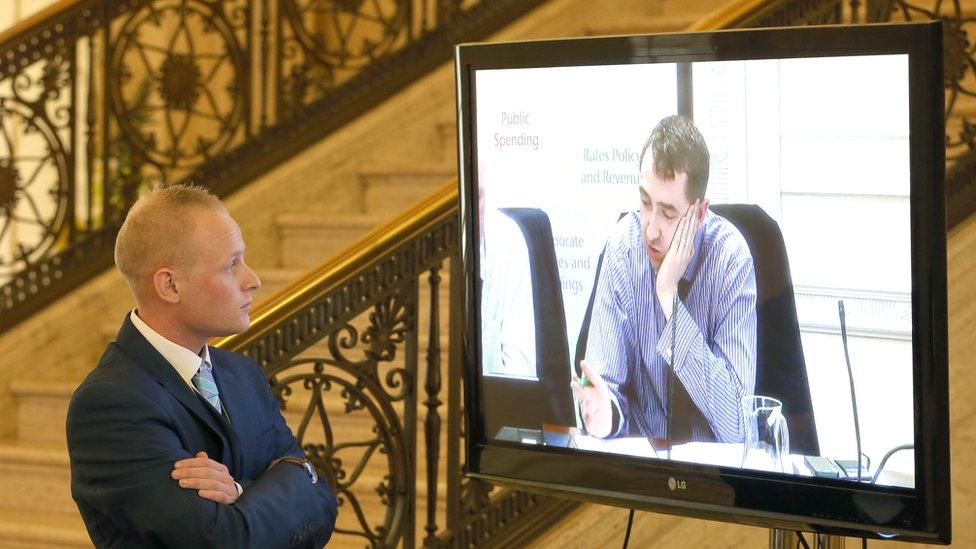Arlene's year - Devenport's politics review of 2016
- Published
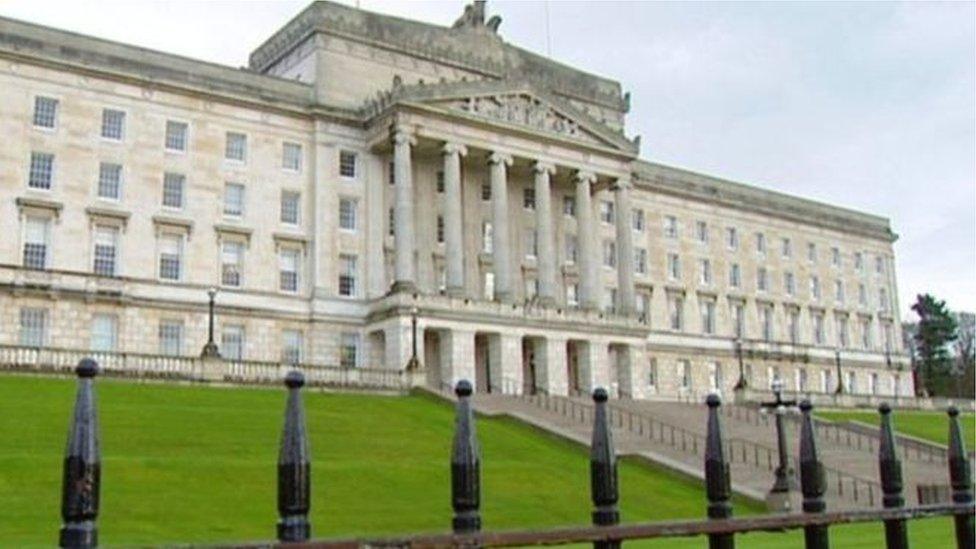
From RHI to austerity - 2016 has been an eventful year on the hill
For good or ill, 2016 in Northern Ireland turned out to be Arlene Foster's year.
She took over from Peter Robinson as first minister early in January.
Foster ensured her party, the DUP, emerged from the Assembly elections in May as Stormont's biggest party on the back of a highly personal campaign.
But in the background a controversy about the mismanagement of a renewable energy scheme she set up in 2012 rumbled away.
'Bitter divisions'
It finally fully grabbed the public's attention via a BBC Spotlight programme in early December.
That, in turn, led to bitter divisions within her party being exposed by a BBC Nolan show investigation.
Mrs Foster fought off a demand that she should be excluded from office only because the Stormont rules would have required her own DUP MLAs to back it.
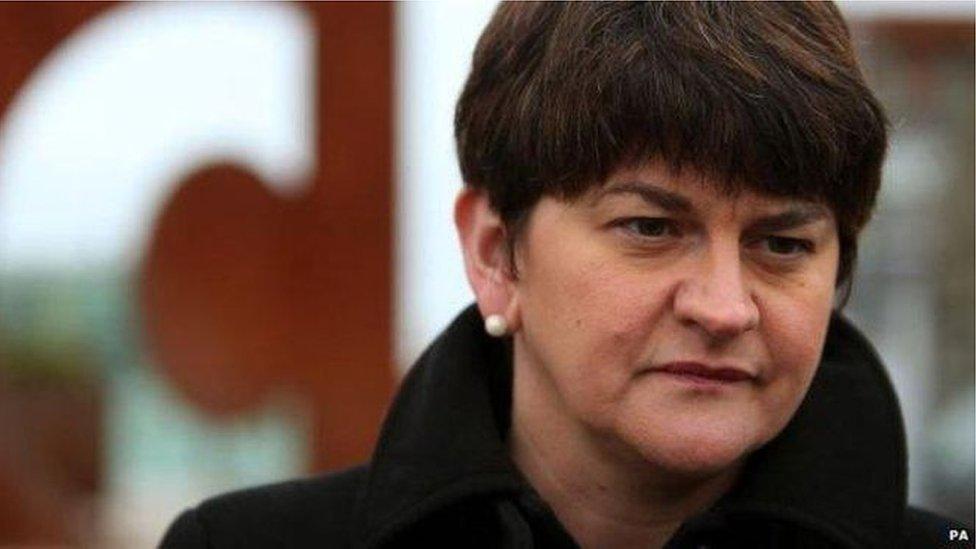
For good or ill, 2016 in Northern Ireland turned out to be Arlene Foster's year
'Fresh start?'
When the Fermanagh MLA took over the helm at the DUP the party bosses had good reason to think they had chosen wisely.
Peter Robinson's health problems and his need to combat questions about his handling of the controversial £1bn Nama property deal could be consigned to history.
Arlene Foster and Martin McGuinness set about providing the Stormont Executive with a fresh image to go alongside their "Fresh Start" agreement.
They promised to deliver services better for the public and attempted to banish the memory of 2015's crises over welfare reform, IRA activity and DUP ministers engaging in "rolling resignations".
Despite some differences - for example over Mrs Foster's reluctance to engage in any commemoration which could be construed as celebrating the centenary of the 1916 Easter Rising - the two main parties remained closely in step.
'Close the gap'
When they fought the Assembly election in May, the DUP did play the card of telling the voters to keep Mrs Foster in place as a Unionist first minister.
But there were similarities in aspects of the DUP and Sinn Féin manifestoes - both promised the same £1bn increase in health spending.
When the results came in, the DUP held on to 38 seats - seen as success given the difficulties of the previous year.
The Ulster Unionists had hoped to close the gap on the DUP, but they also ended up with the same number of MLAs as in 2011.
Their leader Mike Nesbitt publically admitted the 16 seats they had won didn't match the 18 -19 target figure he had set himself, written in a sealed envelope which he opened live on BBC TV after the results were declared.
'Backdrop of austerity'
Sinn Féin did not close the gap on the DUP, but fell back one.
Against a backdrop of austerity, they lost out not to the SDLP - which saw its Assembly team shrink by two - but to new kids on the block, People Before Profit, who promised voters a left wing opposition to government cuts. The Greens also gained a seat.
The Ulster Unionists pulled out of the Stormont Executive in 2015 in protest over the IRA linked murder of Kevin McGuigan.
After the May 2016 election, the UUP decided to stay in opposition taking advantage of new rules introduced by the Fresh Start Agreement, which provided some finance and enhanced speaking rights to an "Official Opposition".
'New justice minister'
The SDLP also declined the ministry it was entitled to, much to the anger of Sinn Féin who accused it of going against the spirit of the Good Friday Agreement.
There was a question mark over whether Alliance would stay in the coalition, by holding on to the justice department previously headed by its leader David Ford.
The party decided to use its leverage to demand further changes to the Stormont system - most notably the petition of concern, which had been used by the DUP to block the introduction of same sex marriage.
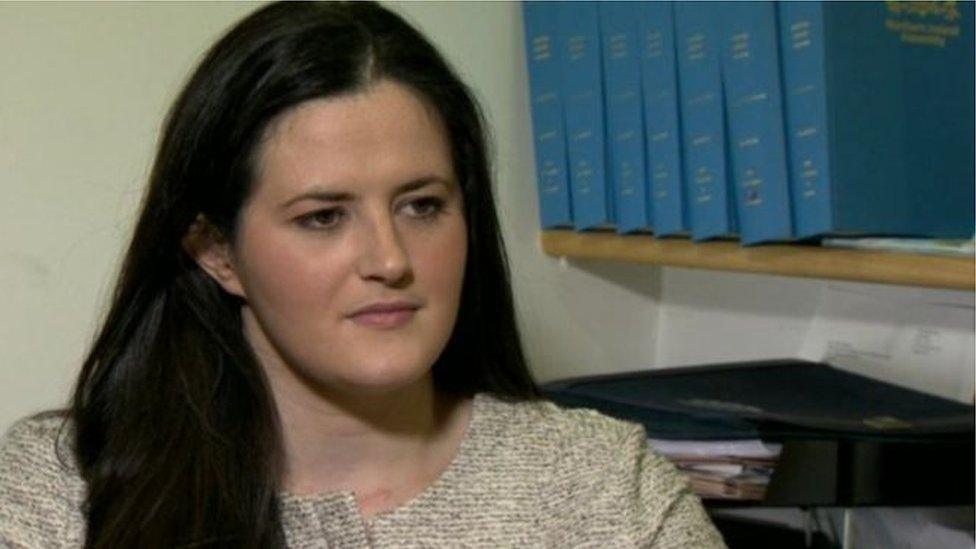
Claire Sugden said yes to the DUP-Sinn Féin offer of a role as justice minister
However, the DUP and Sinn Féin were not prepared to accede to Alliance's demands. Instead they turned to the independent unionist Claire Sugden, who held on to her East Londonderry seat.
She kept reporters in suspense over whether she would take the job - her difficult decision was compounded by a family tragedy, as Ms Sugden's brother-in-law was critically injured in a motorbike accident.
But eventually Ms Sugden said yes to the DUP-Sinn Fein offer, adding that she hoped to achieve change on issues like abortion and same-sex marriage in what she called "a subtle way".
So was born a new look coalition, dominated by two parties, who seemed determined to make their honeymoon last as long as possible.
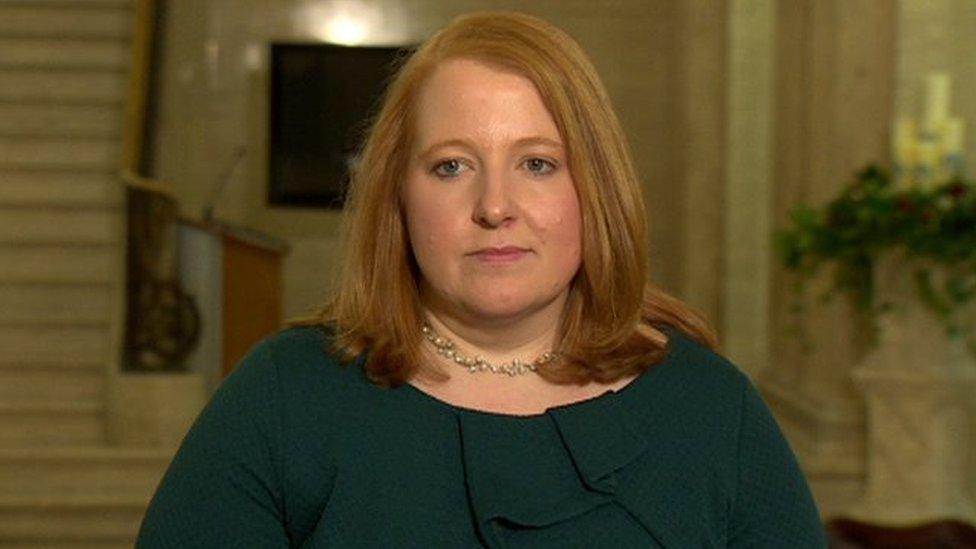
Naomi Long became the new Alliance leader, taking over from David Ford
Alliance joined the others in opposition and in October David Ford decided the time was right to hand over the reins.
His deputy Naomi Long had lost her East Belfast seat in the House of Commons in 2015.
But freshly elected to Stormont she was the obvious candidate and got the job without any contest.
Mrs Long's challenge will be to make Alliance's voice heard even though, unlike the UUP and the SDLP, the party is not entitled to any of the benefits of being part of an "Official Opposition".
'Moral issues'
Moral issues have remained prominent throughout the year.
In January, the Alliance MLAs Stewart Dickson and Trevor Lunn tried to change the law on abortion in cases of fatal foetal abnormality.
They lost out due to opposition from the DUP, TUV and SDLP.
Instead an expert working group was set up to look at the sensitive subject. The BBC understands they have recommended a change in the law.
However, the Executive has yet to clarify its response.

Two years ago, gay rights activist Gareth Lee was refused a cake with the slogan 'Support Gay Marriage'
Campaigners for same-sex marriage continued to call for the law to be brought into line with the rest of the UK.
They won a victory in the courts, in a battle over a bakery's refusal to provide a cake decorated with a pro-gay marriage slogan.
However, it's clear they will find little comfort at the Assembly, with Arlene Foster making it clear she will use the petition of concern to block any attempt to legalise same-sex marriage this side of the next election, which is due in 2021.
'Brexit'
The two main parties together with Claire Sugden maintained greater discipline than the previous coalition - but one obvious difference between them was the EU referendum in June: The DUP campaigned for leaving the EU, whilst Sinn Féin wanted to remain.
Like the pundits, most Stormont politicians probably imagined once the campaign ended the UK would end up staying in the EU.
But whilst Northern Ireland voted 56% in favour of staying, the UK as a whole decided by 52% to leave.
Given the movement of thousands of people across the border on a daily basis it seems obvious Brexit could have a more immediate practical impact on Northern Ireland than any other part of the UK.
Theresa May replaced her namesake Theresa Villiers with a new Northern Ireland Secretary James Brokenshire to handle the sensitive task of resolving the border conundrum.

Protests were staged against Brexit in a number of border areas - it remains to be seen what effect Brexit will have on the border
By the end of the year the public became familiar with the government mantra that there would be "no return to the borders of the past", yet there was no detail on how the post-Brexit border would operate.
The referendum result left the two main parties at Stormont also having to manage their Brexit differences.
Martin McGuinness and Arlene Foster signed a joint letter to Theresa May which appeared to put the DUP very much on the soft end of the Brexit camp.
However, maintaining a common position is likely to become more difficult as the consequences unfold in the real world.
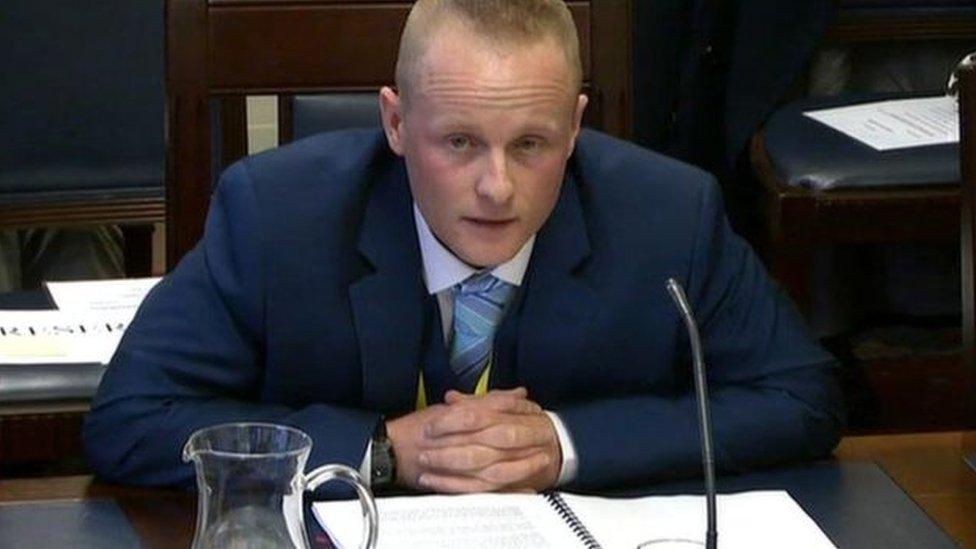
After a series of messages between Mr McKay, Jamie Bryson and another Sinn Féin member emerged, the North Antrim MLA resigned.
Witness coaching scandal
The Nama property scandal was a big running story in 2015 and it still had a lot of life left in it in 2016 - most notably the revelation in August of behind the scenes contacts between the former finance committee chair Sinn Féin's Daithi McKay and the loyalist blogger Jamie Bryson.
Mr Bryson had used a high profile appearance in front of Mr McKay's committee to implicate the former First Minister Peter Robinson in the scandal - something Mr Robinson strenuously denied.
After a series of messages between Mr McKay, Mr Bryson and another Sinn Féin member emerged, the North Antrim MLA resigned.
He admitted his behaviour had been inappropriate - he has recently resurfaced as a commentator but the police are still investigating the matter.
It seemed hard to top Nama for Stormont scandals - but at the end of the year a couple of other stories threatened to do just that.
The Executive came under pressure over its Social Investment Fund (SIF), an initiative designed to improve life in disadvantaged areas.
Ministers defended giving a grant to a UDA-linked community group in east Belfast, but faced embarrassment when its Chief Executive, Dee Stitt, also a leading UDA member, gave an outspoken interview to the Guardian newspaper proclaiming that his band provided "homeland security" in its neighbourhood.
'Beat down flames'
Then in December, a controversy ignited over a Renewable Heat Incentive Scheme (RHI).
The saga had been, quite literally, burning away for years - but a Spotlight programme highlighted the scale of the potential loss to the Stormont budget of £400m over 20 years and a BBC Nolan show investigation opened up a massive public crack within the DUP over the handling of the scheme with the former minister Jonathan Bell and the DUP leader Arlene Foster trading blows on our TV screens.
As the minister who signed off on the scheme, Mrs Foster ended the year as a firefighter trying to beat down flames only to find them erupting elsewhere.
She lost a no confidence vote by 39 votes to 36, but under the Stormont cross-community rules remains in post.
The DUP's handling of the matter, however, ended the last vestiges of any honeymoon between Mrs Foster and the Deputy First Minister Martin McGuinness.

Flaws in setting the scheme's subsidy rate left it open to abuse as claimants could earn more cash the more fuel they burned
It also weakened the position of the Stormont Speaker Robin Newton, widely viewed as less competent in his handling of the chamber than his predecessors.
Despite Sinn Féin calls for her to step aside temporarily, Arlene Foster seems determined to hang on as first minister. However, there must be a question mark about her partner in power Martin McGuinness.
He had to pull out of a visit to China in December, due to as yet unspecified health problems.
Adams under pressure
After the Irish election back in February 2016, Sinn Féin emerged as the third biggest party in the Dáil - an influential role given the deal between Fine Gael and Fianna Fáil.
However, Mr Adams ended the year under renewed pressure over his contacts with the family of murdered prison officer Brian Stack.
The Sinn Féin president has survived so many controversies that it is always unwise to write his obituary.
But Martin McGuinness has acknowledged that both he and Gerry Adams cannot continue for ever, and it may be that the deputy first minister's health issues hasten the talk of a transition in Sinn Féin's leadership team.
- Published26 October 2016
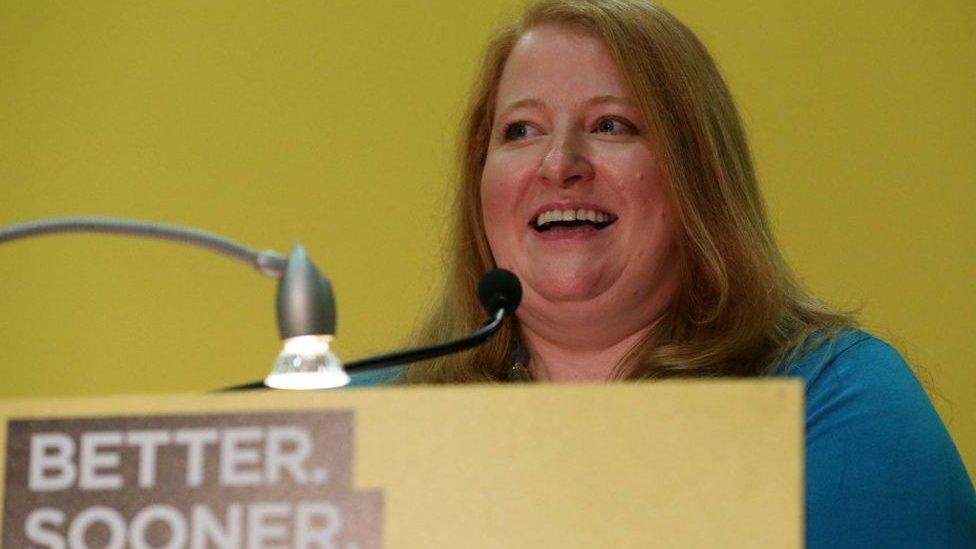
- Published13 May 2016
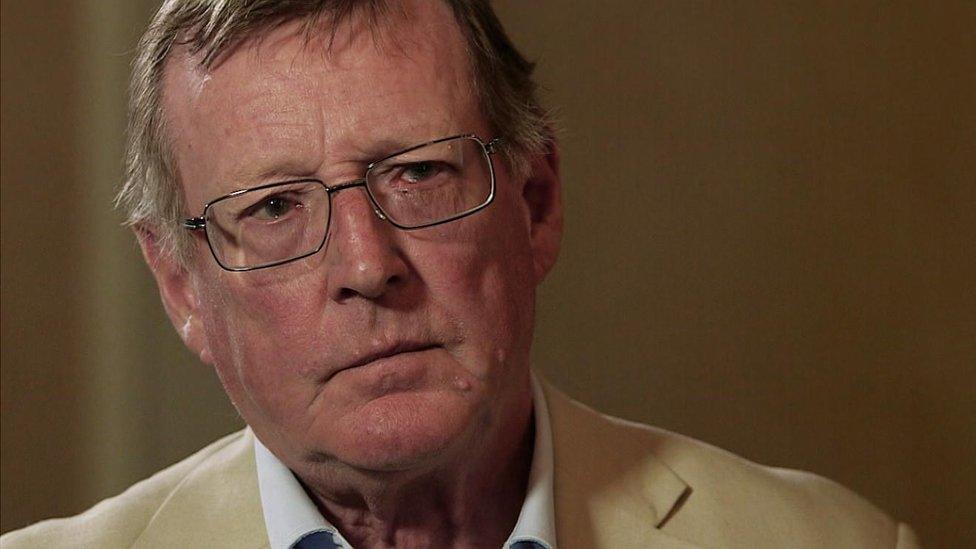
- Published25 May 2016
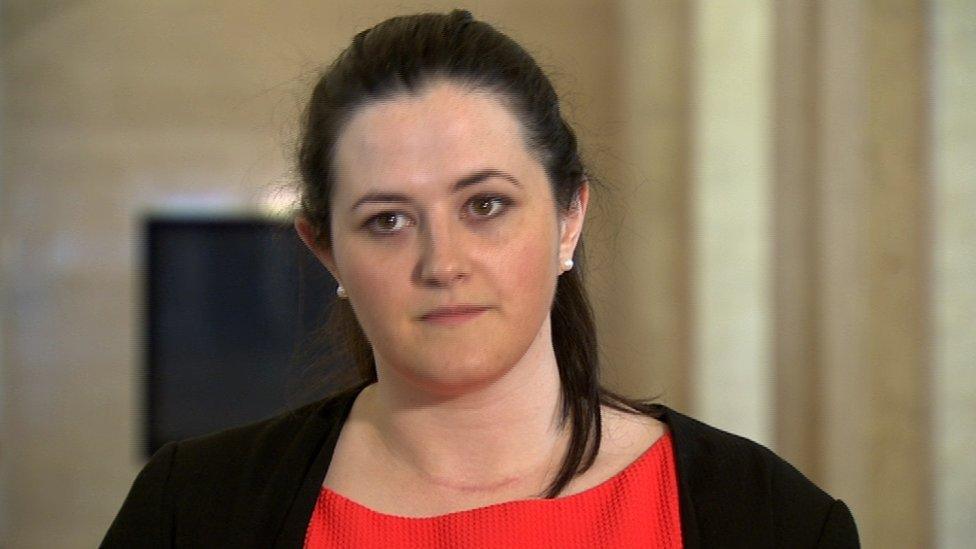
- Published16 December 2016
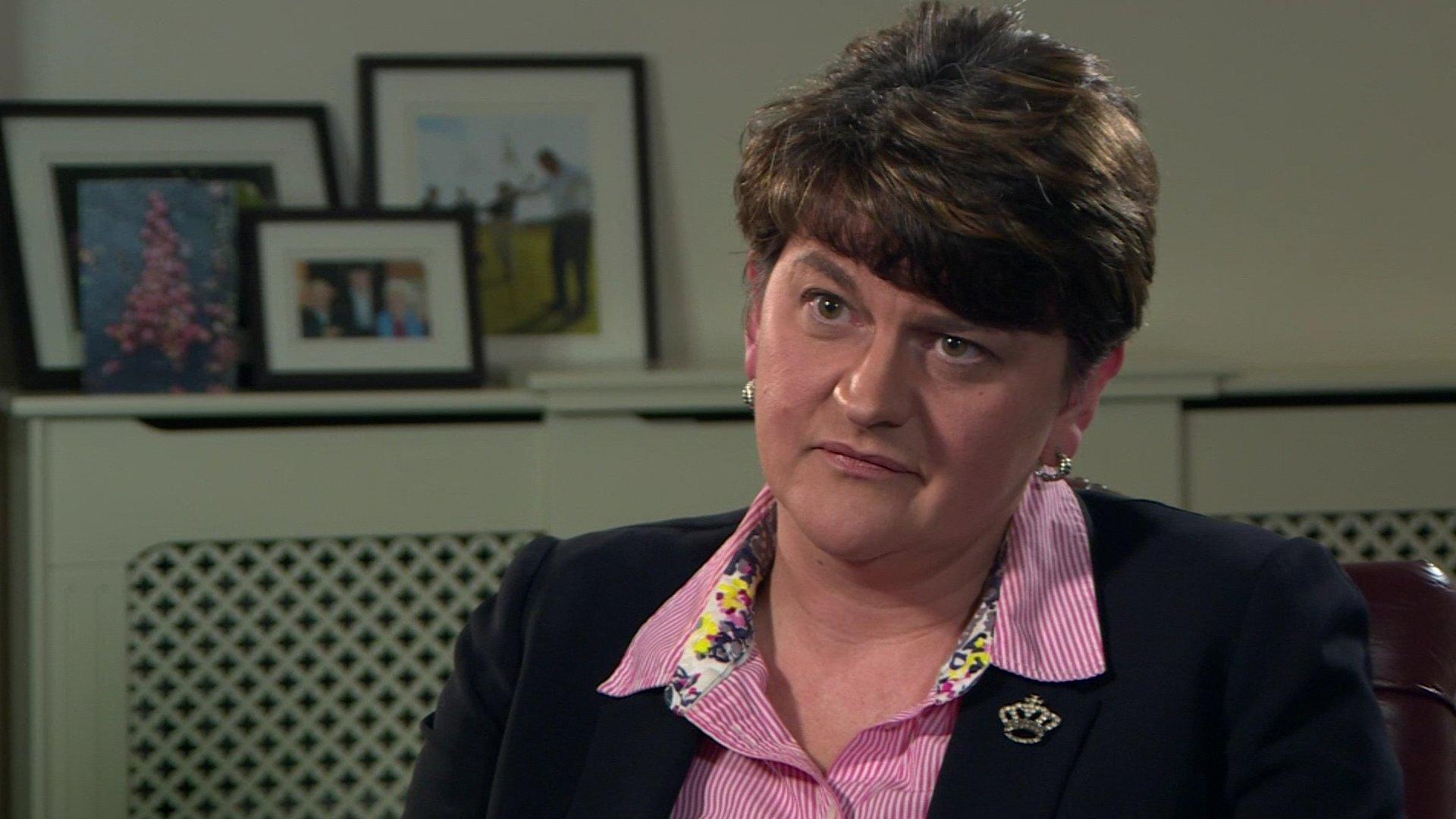
- Published22 August 2016
